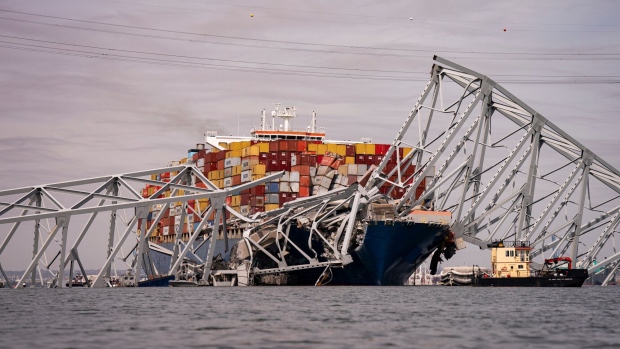Mar 28, 2024
Baltimore Bridge Collapse Adds to Mounting Pulp Market Headaches
, Bloomberg News

(Bloomberg) -- The collapse of a major Baltimore bridge is creating disruptions in the flow of pulp into the US, in the latest headache for some of the largest exporters of the key ingredient in toilet paper.
Baltimore’s port was shut down Tuesday after a ship smashed into the bridge, killing six people. The harbor was one of the few used in the US by top pulp producers including Brazil’s Suzano SA and Eldorado Brasil Celulose SA, according to people familiar with the operations who didn’t want to be identified discussing private company information.
The port accounted for about 6% of pulp imports into the US over the past year, according to data from the US Census Bureau. The country imported more than 3 million tons of wood pulp in 2023.
Companies are looking to redirect cargo to nearby ports, which is set to cause shipment delays in other hubs including Philadelphia, New York and Norfolk, Virginia.
Read More: Baltimore Bridge’s $2 Billion Rebuild Starts With Clearing Ship
The bridge disaster is the latest setback for the pulp industry, which is already facing disruptions from mill stoppages and violence in the Red Sea.
Global pulp prices are climbing, with top exporter Suzano recently reporting lower-than-normal inventories at main consumer markets due to shipping backlogs related to missile attacks in the Red Sea by Yemen-based Houthi militants.
Pulp markets were also affected by workers’ strikes this month that resulted in mill stoppages in Finland, another major world supplier of the commodity.
Average pulp prices this year are seen reaching as much as $670 per metric ton, according to a Tuesday report from analysts including Daniel Sasson at investment bank Itau BBA. That compares with levels around $600 a ton seen a year earlier.
©2024 Bloomberg L.P.





